Best external hard drives for music production 2025: Back up your music and boost your computer's performance
Store recording sessions, video files, and sample libraries with our expert pick of the best external hard drives for Mac and PC
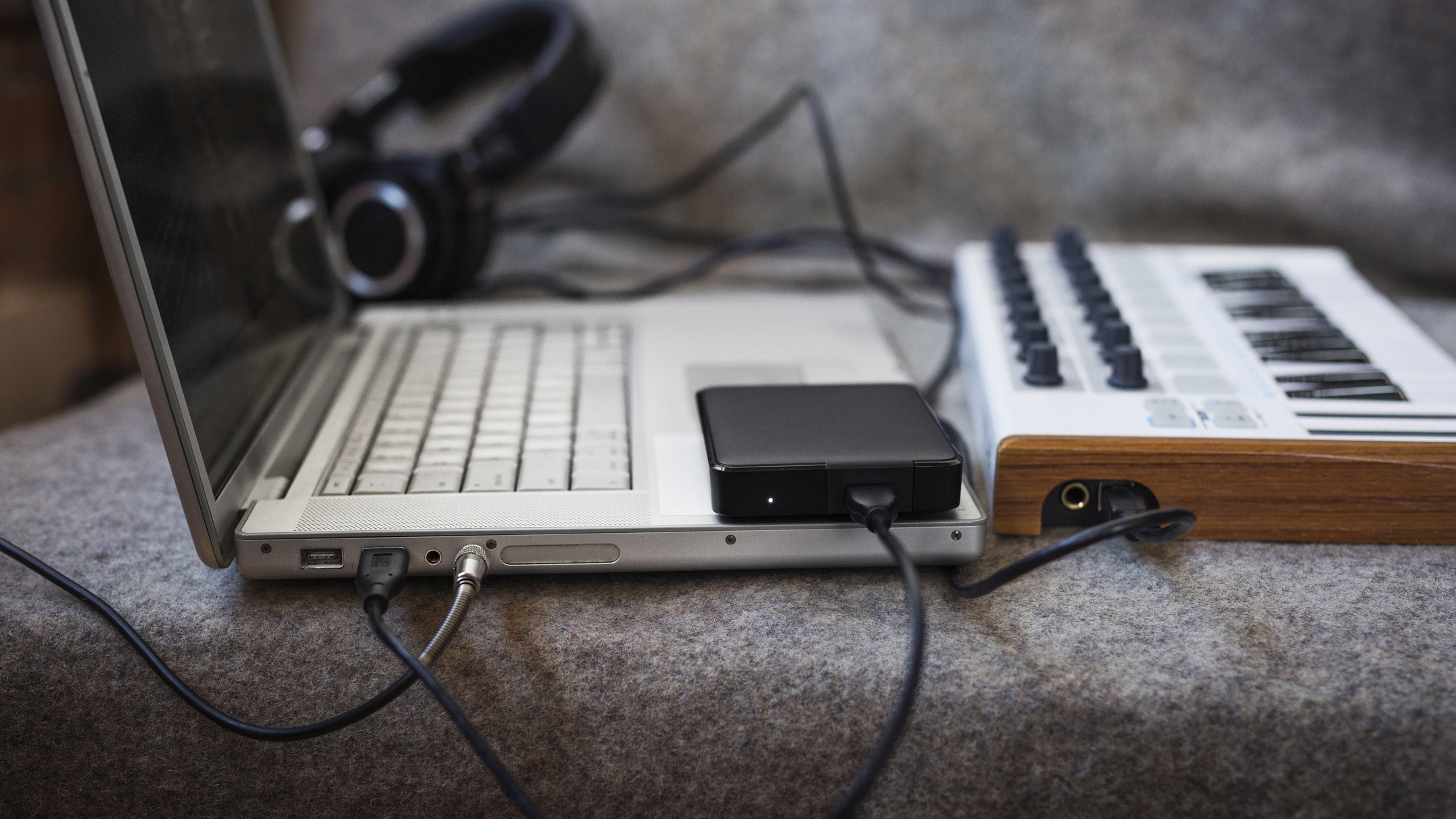
It’s certainly not a glamorous topic, but storage is absolutely an essential one when it comes to upgrading your studio space. And no, I’m not on about more shelving for your pedals and synths – though it couldn’t hurt to think about that, too. No, the storage in question is, of course, data storage.
Sample packs, dense VSTs, an ever-expanding tranche of audio files in an ever-growing list of DAW sessions; to meet the growing data-space needs of your set-up, be it professional or portable, you’ll need one of the best external hard drives for music production on the market to keep things moving smoothly.
External hard drives are not just for backing up data, though. If you're a Mac user, then you'll be well aware that, unlike a great many Windows-toting alternative PCs and laptops, you can’t upgrade internal storage after purchase. This finite internal storage will quickly run out as you make more music, making an external hard drive an essential bit of kit – whilst improving your computer’s performance through freeing up space and resources.
In this guide, I've listed my favourite hard drives - both HDDs and SSDs - by use case, so you can get a great overview of what's best suited to your particular needs. If you're after my top pick straight off the bat, then check out the speedy, slimline and reliable Samsung T7, which offers up to 4TB of storage. In this guide I've got other options to cover musicians on the go, those in permanent studios and more.
The quick list
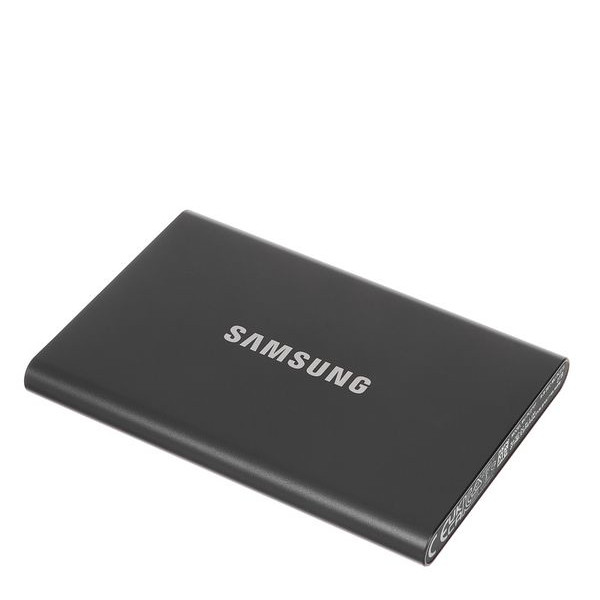
I used a trusty Samsung T5, this version’s predecessor, for around 4 years without a problem, so recommending this new version is easy. It has rapid transfer speeds, is slimline and there's a choice of colours to choose from. It's also an ideal external hard drive for a variety of uses, including iPads, laptops and cameras. My top choice without question.
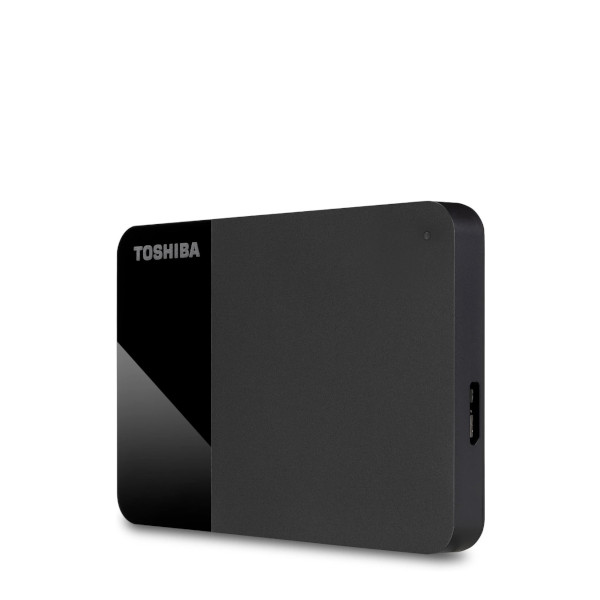
The Canvio Ready operates at 7,200RPM, putting it a little above its fellow budget-level competitors in terms of read and write speed; as for the protection of your data, there are shock sensors aplenty within the casing to help protect your sessions from unexpected drops. All told, this range isn’t setting the world on fire – but neither is it setting your wallet on fire!
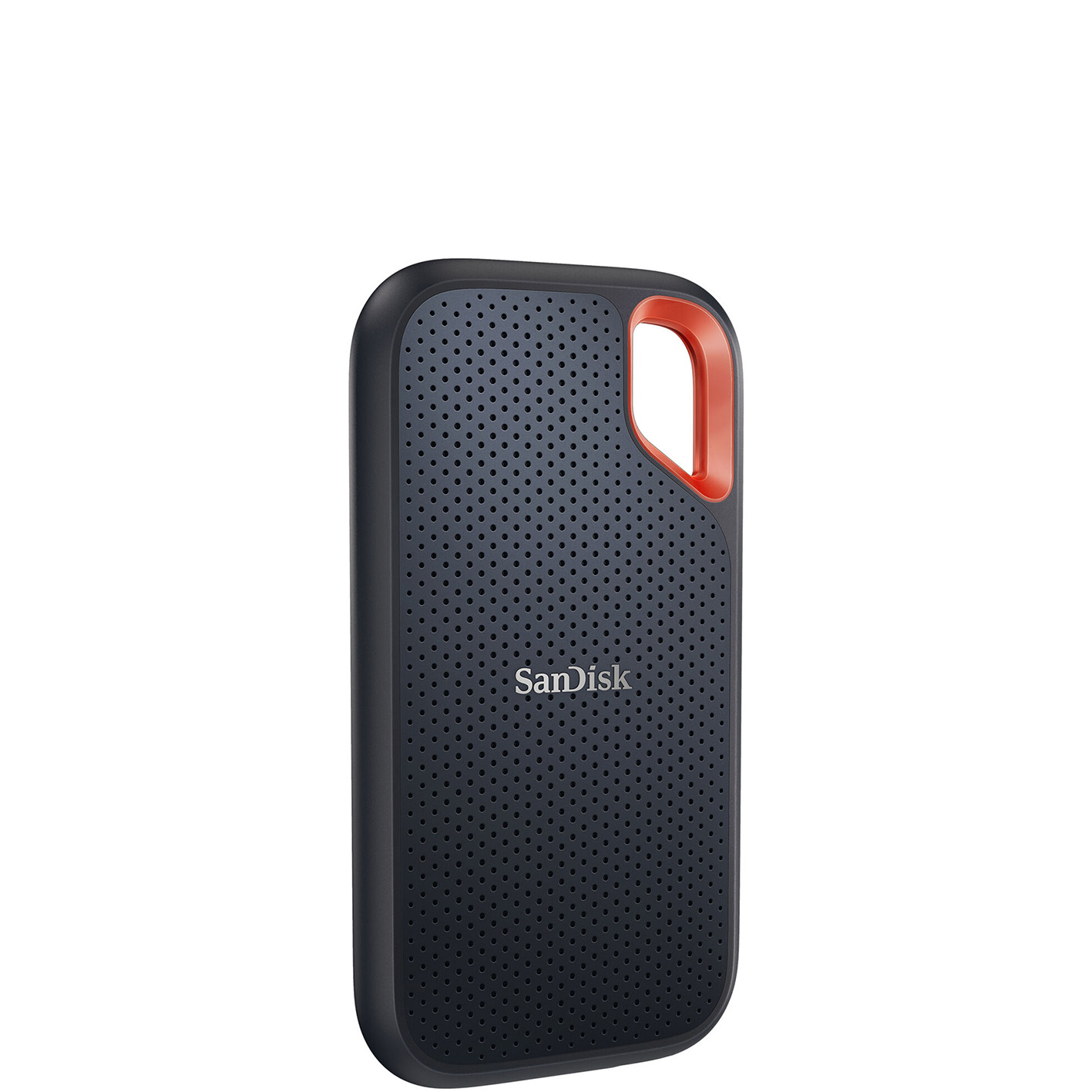
Taking rugged portability to the next level comes the SanDisk Extreme Portable. With the high data transfer speeds you'd expect of an SSD, the Extreme Portable also packs in a bunch of resistance to things like dust, water, and drops. If reliability and toughness are required, the SanDisk Extreme might be your new best buddy.
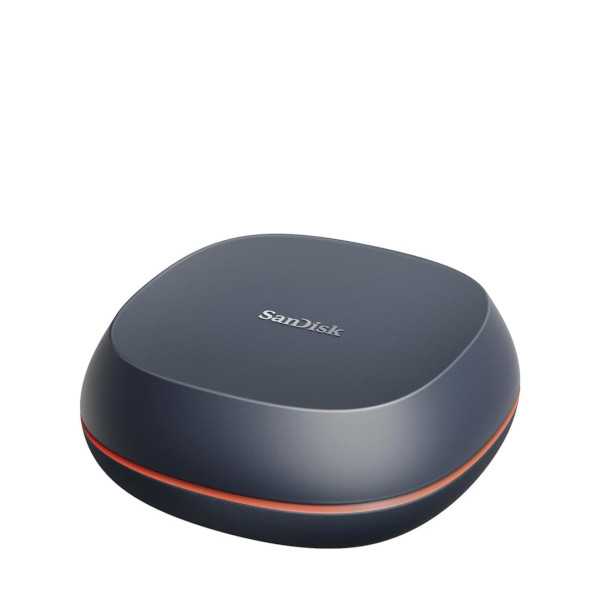
The Desk Drive can store up to 8TB of your data – and capable of giving you access to said data with some considerable haste too. It’s an ideal hard drive for complete studio computer backups, as well as for keeping old and legacy projects within reach. Its a neat choice for keeping your project backups at the tips of your digital fingers.
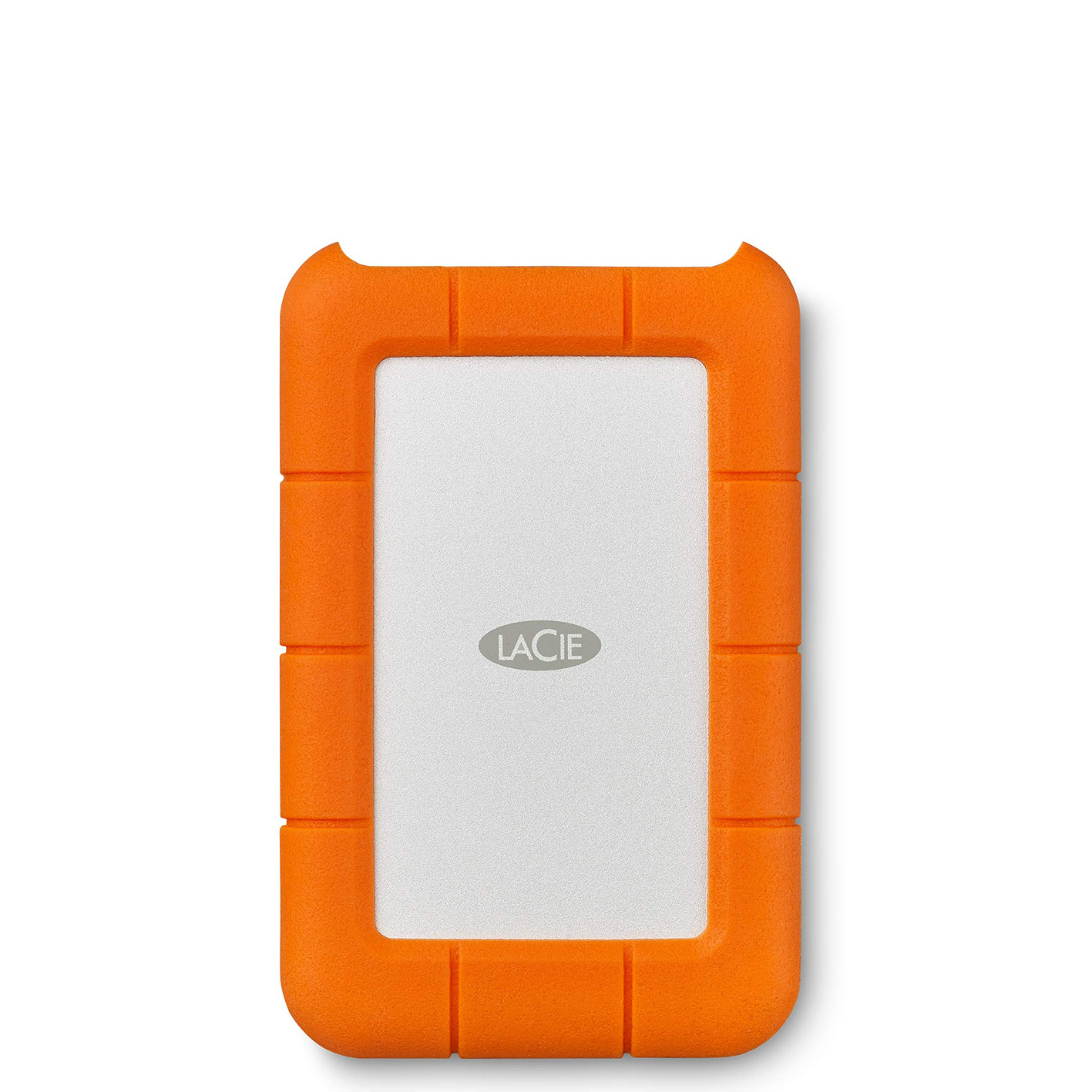
On paper, the LaCie Rugged Mini drives aren't that advanced. They only offer a 5,400rpm data transfer speed, so realistically you aren't going to be streaming sample libraries from one. But as a portable backup drive, its shock resistance and small size mean it is perfect for on-the-go performers and creators.
Best overall
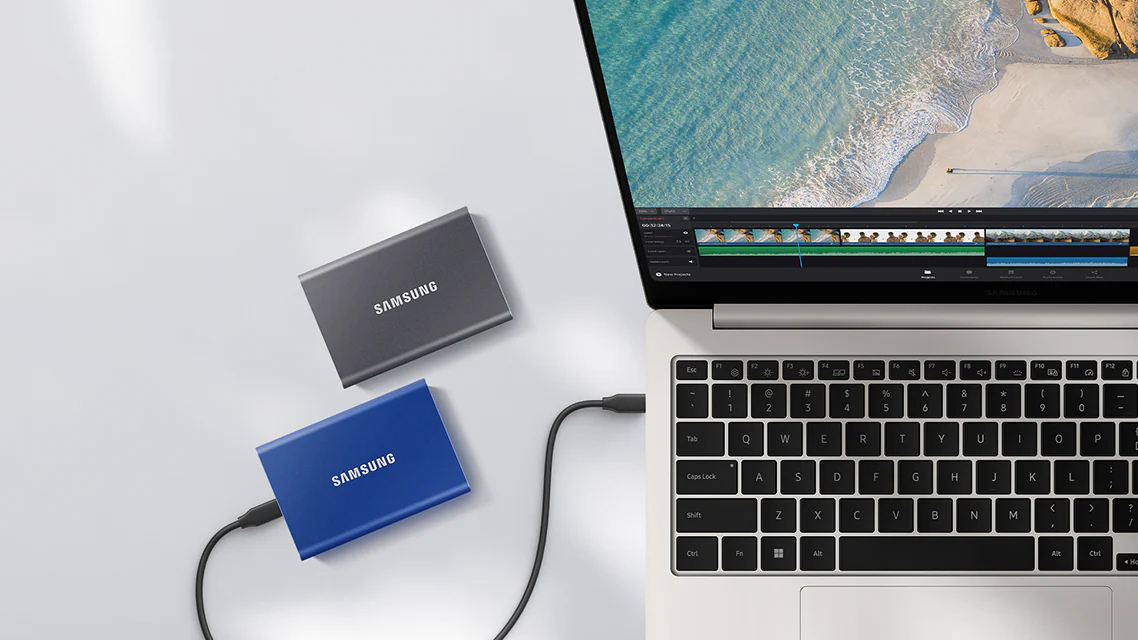
1. Samsung T7
Our expert review:
Specifications
Reasons to buy
Reasons to avoid
✅ Buy if you want a reliable, speedy HD: The Samsung T7 is a solid HD that's perfectly portable.
❌ Avoid if you want to keep your HD pristine : The Samsung T7 comes in a variety of covers, but the metal chassis can scratch easily
Transfer speed: ★★★★★
Build quality: ★★★★½
Portability: ★★★★★
Overall: ★★★★★
For me, the best external hard drive for musicians you can buy right now is the Samsung T7. I actually used a trusty Samsung T5, this version’s predecessor, for around 4 years without a single problem, so recommending this new version and putting it into the top spot was an easy decision.
I love the rapid transfer speeds you get here and the fact it’s so small you can easily cart it around with you in your back pocket - but perhaps in a backpack might be a safer option!
The Samsung T7 also comes in various colours for a nice bit of customisation which also helps it to stand out if you have several storage units on the go.
With it being an SSD, and therefore able to be bus powered - meaning it doesn’t require an additional power source - it is ideal for a variety of use cases, including iPads, laptops and cameras.
A versatile option, then, and the Samsung T7 should be at the top of your shopping list.
Best budget
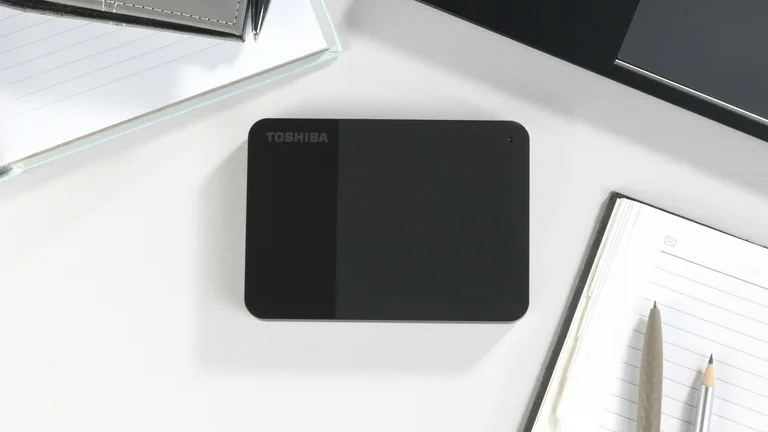
2. Toshiba Canvio Ready
Our expert review:
Specifications
Reasons to buy
Reasons to avoid
✅ Buy if you want an external HD without the big cost: This is an excellent storage option if money is tight, with up to 4TB available.
❌ Avoid if you have more money to spend: The Toshiba Canvio Ready fits the budget bill, but if you have more to spend, there are better options available.
Transfer speed: ★★★★½
Build quality: ★★★★½
Portability: ★★★★★
Overall: ★★★★½
The Toshiba Canvio Ready external hard drive operates at 7,200RPM, putting it a little above its fellow budget-level competitors in terms of read and write speed, and that's why it's made on the list of the best hard drives for music.
As for the protection of your data, there are shock sensors aplenty within the casing to help protect your sessions from unexpected drops.
It's a good size for carting around with you, with the unit itself rocking in at 2.5" and it also utilises USB 3.0 technology and can store up to 4TB of media - an excellent amount considering its price.
Sure, the Toshiba Canvio Ready isn't as fast as an SSD, but all told, it's an excellent option if you're in the market for an external hard drive on a tight budget.
Best portable
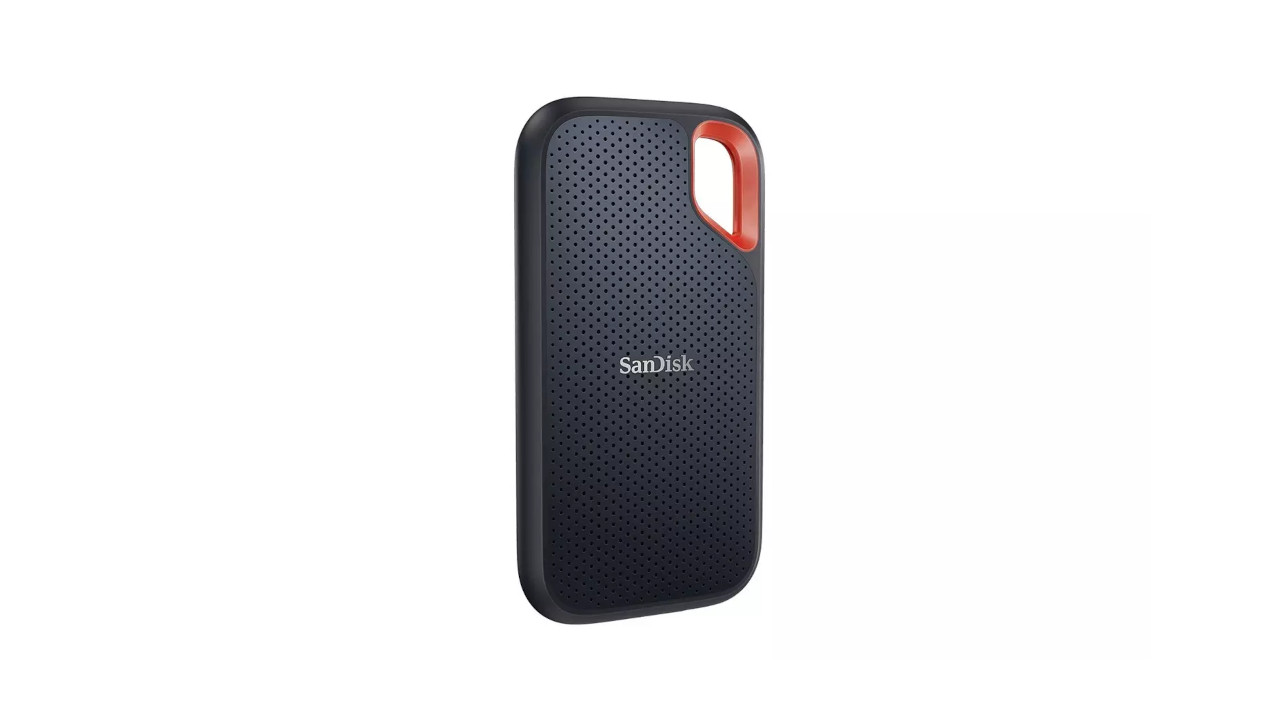
3. SanDisk Extreme Portable
Our expert review:
Specifications
Reasons to buy
Reasons to avoid
✅ Buy if you want a robust portable HD: The SanDisk Extreme Portable is ideal for carrying with you and it's build to withstand bumps and bruises too.
❌ Avoid if big storage is what you need: With up to 2TB of storage, you might want to consider something else if you need more room.
Transfer speed: ★★★★½
Build quality: ★★★★½
Portability: ★★★★★
Overall: ★★★★½
Taking rugged portability to the next level comes the aesthetically pleasing SanDisk Extreme Portable.
With the high data transfer speeds you'd expect of an SSD, the Extreme Portable also packs in a bunch of resistance to things such dust, water, and butter-fingered drops.
You might think this could be a bit overkill for creative production tasks. But consider the field recordist standing out in the rain capturing the sounds of nature, or the videographer filming in harsher climes.
It might not boast the same storage flexibility as others in this list, but if reliability, toughness and sheer portability are required, you could find that the SanDisk Extreme could turn into your new best buddy as a value hard drive for music.
Best desktop
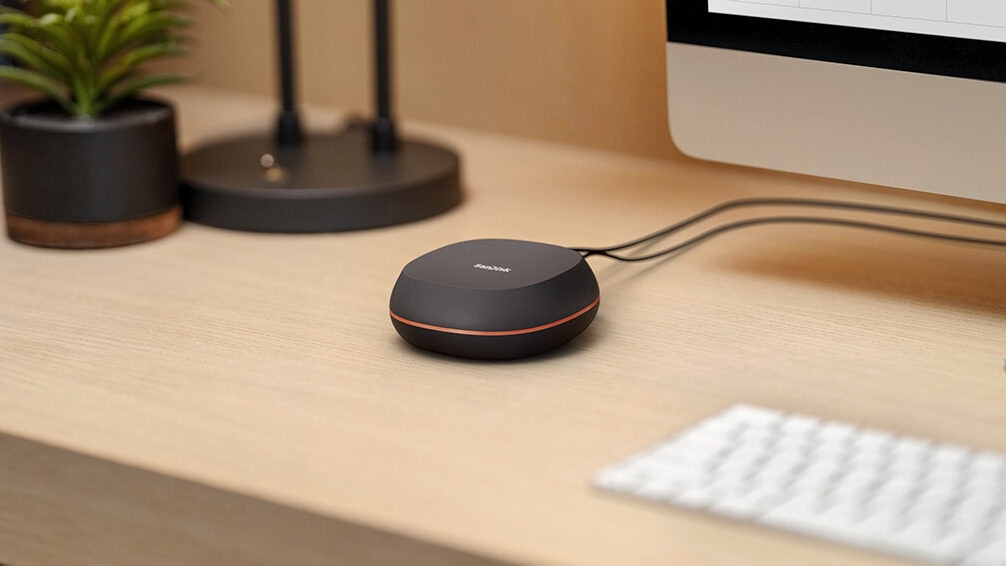
4. SanDisk Desk Drive
Our expert review:
Specifications
Reasons to buy
Reasons to avoid
✅ Buy if you want an attractive desktop HD with good storage: I know it shouldn't matter, but I love the look of this HD - and it offers up to 8TB of storage.
❌ Avoid if you huge storage is top of your list: Sure, 8TB isn't to be sniffed at, but if your desktop needs are gargantuan, then this might not be ideal.
Transfer speed: ★★★★½
Build quality: ★★★★½
Portability: ★★★
Overall: ★★★★½
I've picked out another SanDisk special here, this time in the uniquely bean-esque form of the company's Desk Drive.
Despite being smaller than a fist, the SanDisk Desk Drive is capable of storing a thoroughly decent 8TB of your data – and it's also capable of giving you access to that data with some considerable haste too.
In my opinion, it’s an ideal hard drive for complete studio computer backups, as well as for keeping old and legacy projects within reach.
It is a shame the largest one you can get is 8TB, as most would consider a desktop SSD to be an opportunity for vast data storage.
That said, 8TB is more than enough for most of us – and so with its speed, the SanDisk Desk Drive becomes a neat, suave choice of desktop hard drive for keeping your project backups at the tips of your digital fingers.
Best rugged
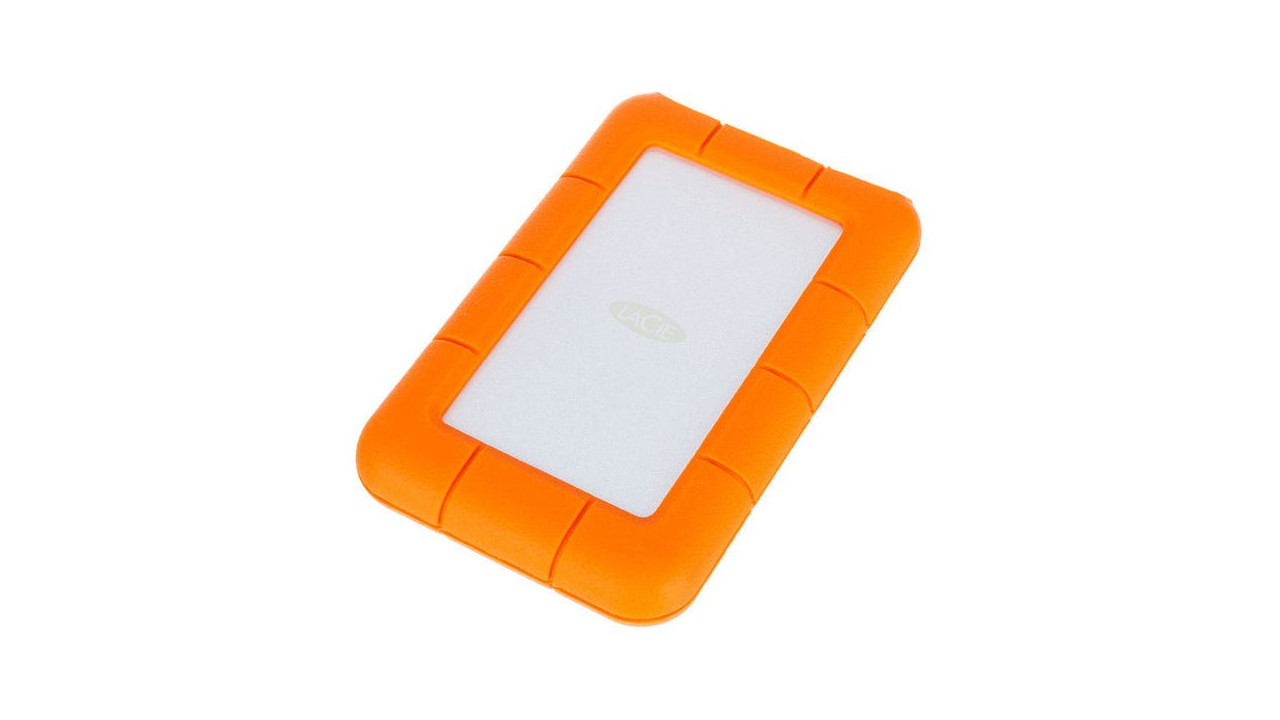
5. LaCie Rugged Mini
Our expert review:
Specifications
Reasons to buy
Reasons to avoid
✅ Buy if you want a rugged HD that'll take a few knocks: This is a much-loved HD and it'll survive wear and tear effortlessly.
❌ Avoid if your idea of design is a little more refined: I don;t mind the LaCie's distinctive looks, but some may want their gear a little less bright.
Transfer speed: ★★★★
Build quality: ★★★★½
Portability: ★★★★½
Overall: ★★★★½
Certain external hard drives become synonymous with certain applications, and the LaCie range's popularity with creative professions is legendary.
These iconic, instantly recognisable orange drives are used by photographers, videographers, and musicians everywhere, and for very good reason.
On paper, the LaCie Rugged Mini drives aren't that advanced. They only offer a 5,400rpm data transfer speed, so realistically you aren't going to be streaming sample libraries from one.
However, as a portable backup drive, its shock resistance and small size mean it is perfect for on-the-go performers and creators.
It also has storage capacity of up between 1TB-4TB depending on what model you go for and is worth serious consideration - although the colour scheme might put some off taking the plunge.
How to choose the best external hard drive

When it comes to choosing the best external hard drive for your music studio, there are a few crucial factors to bear in mind before you make your choice.
1. Speed
First and often foremost, speed matters. As we know, music production often involves handling large files, from raw audio recordings to high-quality samples and virtual instruments. A hard drive with fast data transfer speeds is essential for smooth workflow and seamless playback. Look for drives with USB 3.0 or higher, as they offer faster transfer rates, reducing the time spent waiting for files to load or transfer.
2. Capacity
Storage capacity is another critical consideration. As your music library grows and you accumulate more project files, you'll need ample space to store everything. Determine your storage needs based on the size of your projects and the volume of files you work with regularly. If you’re making Hans-Zimmer-esque arrangements with live orchestral musicians, your data needs are going to be far higher than if you’re a solo singer-songwriter working on acoustic demos – and even still, it's often wise to invest in a drive with more capacity than you currently think you need.
3. Durability
Musicians and producers who are constantly on the move will value durability, and portability, from an external hard drive. Whether you're travelling to gigs or working in different studio environments, your hard drive needs to withstand the rigours of life on the road. Look for drives with sturdy enclosures and shock-resistant features to protect your data from accidental bumps and drops. Likewise, a compact, lightweight drive that fits easily into a laptop bag or backpack is ideal for on-the-go creativity.
4. Reliability
Reliability is perhaps the most critical factor of all. As a musician or producer, your hard drive is the lifeline of your creative work, storing years of music projects, samples, and recordings. Choose a drive from a reputable manufacturer known for producing reliable, high-quality products. Read user reviews and resources (like this guide). Seek recommendations from fellow musicians to ensure you're investing in a drive that will stand the test of time.
In choosing an external hard drive for your music studio, then, there are five essential factors: speed, storage capacity, durability, portability, and reliability. Your ideal hard drive meets your needs in each of these areas, whether a phone-sized portable SSD or a big, chunky backup device for your desktop.
FAQs
What type of external hard drive is the best for music?
Hard drives come in all shapes and sizes, but there are two essential types you’ll be choosing between: HDDs and SSDs. HDD stands for Hard Disk Drive, and refers to mechanical hard drives that store your data on a spinning disk or platter. SSD, meanwhile, stands for Solid State Drive, referring to hard drives that store their data using grids of minuscule transistors.
HDDs are older technology, and can be slow to read data from. They are useful insofar as you can get a lot of storage for cheap, and can be much more stable long-term for redundant data backups. SSDs blow them out of the water in pretty much every other sense, so my advice would be to pick an SSD where possible.
They’re so much faster for writing and reading data, meaning they’re much more versatile; besides, their lack of moving parts makes them much more durable for on-the-go usage.
Are external hard drives still worth it?
While internal storage on computers and portable devices has undoubtedly increased significantly over time, so too has the size of our DAW sessions. Between recording high-fidelity audio through your interface, storing ever-increasing sample libraries on your computer and processing everything with increasingly-intensive software VSTs, storage remains as much a commodity as it ever was – and whatever you use, an external hard drive remains an essential purchase.
This is particularly the case for those of you in the Mac ecosystem, whether desktop or laptop. The inability to upgrade your internal storage means at some point you'll need to increase your capacity. No one is immune from this need, though.
On a more general note, backing up your music is just generally good practice, and having your backups on an external drive makes them more accessible than an internal hard drive for a PC.
With the advent of SSD and M2 powered drives alongside the fast transfer speeds of USB-C, external drives are now just as high performing as internal hard drives, meaning you can run sessions from external hard drives with no trouble at all. They also come with a whole host of benefits for musicians, particularly when it comes to portability, as they allow you to take your music collection anywhere you go.
Of course, cloud storage is another option for data overflow and session back-ups. Microsoft’s OneDrive and Apple’s iCloud are well-enshrined examples of such storage, but despite their convenience, they are not a completely reliable source for storage. What happens if you can’t access the internet somewhere? Or if your subscription runs out? Or if something unlikely happens to your cloud provider’s servers? Keeping local backups on a physical hard drive you own is the absolute safest way to ensure you keep control of your music.
What is the downside of an external hard drive?
The one major downfall of using an external hard drive for music versus an internal one is that it's more susceptible to damage or loss. Whether that comes from dropping it or losing it, an external hard drive by definition is more exposed, and the compact ones are more easily misplaced.
How do I transfer from my computer to an external hard drive?
Nowadays it's really quite simple to do this. Simply plug your external hard drive into the appropriate connection on your computer. If you're on a Mac it will appear on the desktop, whereas for Windows users you'll likely get a pop up asking what you want to do with it, or you might have to navigate to 'My Computer' to see your drive.
Once you've done this, head over to your files and simply drag and drop them to the external hard drive. You'll be greeted with another pop up and a progress bar, after which your files will have copied over.
If you're regularly making music, it's definitely worth getting an additional drive to act as a backup; keeping a weekly or monthly schedule for regular backups will ensure your hard drive is mostly up-to-date, and minimise the damage in the event of a worst-case scenario.
How we test
At MusicRadar, our team comprises seasoned players and experts deeply immersed in the world of music making, from drummers and guitarists to producers and DJs. With years of playing and meticulous product testing, we bring a wealth of knowledge to the realm of music gear, whether we're testing the best budget laptops for music production, the best studio chairs or of course, the best external hard drive for music storage. We live and breathe everything related to music making, including the peripherals that make our workflows more streamlined and efficient.
When it comes to identifying the best external hard drives for music currently available, we employ a rigorous selection process. Our approach combines hands-on experience, user reviews, and in-depth discussions with our editorial team to ensure a comprehensive evaluation of the top products in this distinctive category.
As dedicated music makers ourselves, our primary goal is to assist fellow musicians in discovering the perfect gear for their sound or workflow. We meticulously consider factors ranging from budget constraints to the intricacies of feature sets, ease of use, and build quality. The result is a thoughtfully curated list representing what we confidently assert to be the best external hard drives for music on the market today.
Find out more about how we test music gear and services at MusicRadar.
Why you can trust us
✔️ More than 9,500 reviews on-site
✔️Over 17 years of product testing
✔️ 3.0 million monthly users globally
MusicRadar has been in operation since 2007 and has been helping people on their musical journey since then. No matter if you're a producer, guitarist, drummer, keyboardist, DJ or general music enthusiast, you'll find useful information across the site, while our team of experts and industry pros regularly put instruments and gear through their paces to help you make an informed decision.
Along with our in-depth buyer's guides, MusicRadar also provides all the latest news, reviews and how-to features to provide as music information on the music world as possible.
Thanks to you, we receive three million visitors per month, making us the one-stop shop for music makers and lovers worldwide - and we also feature content from our magazine titles such as Future Music, Computer Music, and eMusician.
Meet the experts

Chris Corfield is a journalist with more than 12 years of experience writing for some of the music world's biggest brands including Orange Amplification, MusicRadar, Guitar World, Total Guitar and Dawsons Music. Chris loves getting nerdy about everything from guitar and bass gear, to synths, microphones, DJ gear and music production hardware.

Matt has been recording bands since the mid-noughties, cutting his teeth with an M-Audio M-Track 2 and a copy of Cubase on Windows XP. Since then he's used countless audio interfaces to record music for bands across the UK, covering everything from djent to jazz. As a MusicRadar writer, Matt has reviewed 15 audio interfaces in the past year alone, and over 50 different products including guitars, amps, and pedals. Before becoming a writer, he spent five years in the music retail industry working for Dawsons Music and Northwest Guitars, providing expert advice to musicians. He’s currently studying Music Production at Spirit Studios in Manchester, UK.

James Grimshaw is a freelance writer and music obsessive with over a decade in music and audio writing. They’ve lent their audio-tech opinions (amongst others) to the likes of Guitar World, MusicRadar and the London Evening Standard – before which, they covered everything music and Leeds through their section-editorship of national e-magazine The State Of The Arts. When they aren’t blasting esoteric noise-rock around the house, they’re playing out with esoteric noise-rock bands in DIY venues across the country; James will evangelise to you about Tera Melos until the sun comes up.
Latest updates
20/10/25: The latest update to this guide has included finessing the product specs, updating the pros and cons so they're clearer, and adding to the buying advice.
12/03/25: The guide has been updated with three new products: Toshiba Canvio Ready, SanDisk Desk Drive and iStorage diskAshur DT3. All six product entries have been expanded, including new star ratings and "at a glance" boxes. The FAQ section has been expanded with more information, while a section detailing why you can trust the MusicRadar team is also now included. Meet the experts section with all three writers added.
Want all the hottest music and gear news, reviews, deals, features and more, direct to your inbox? Sign up here.
Chris Corfield is a journalist with over 12 years of experience writing for some of the music world's biggest brands including Orange Amplification, MusicRadar, Guitar World, Total Guitar and Dawsons Music. Chris loves getting nerdy about everything from guitar and bass gear, to synths, microphones, DJ gear and music production hardware.
- Matt McCrackenJunior Deals Writer
- James GrimshawFreelance writer